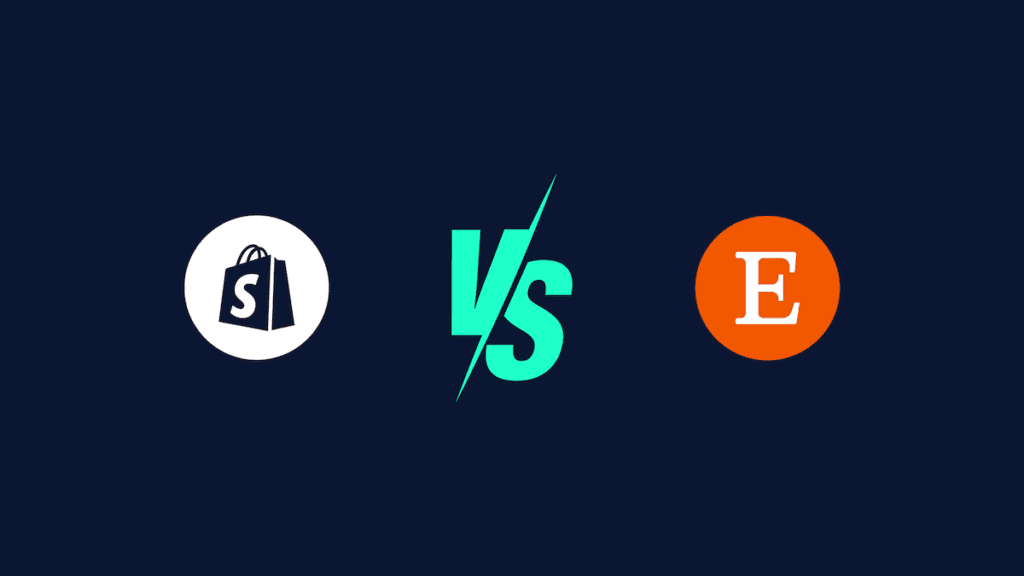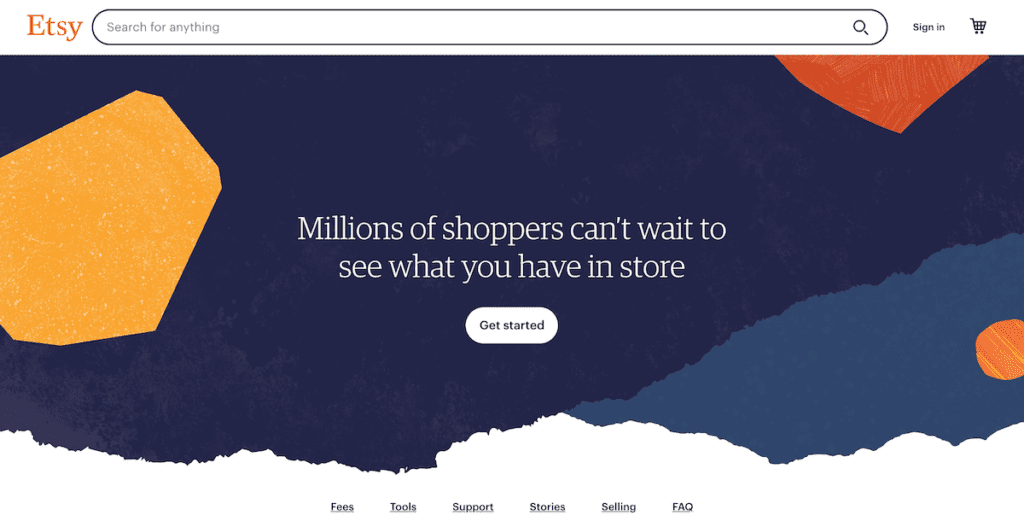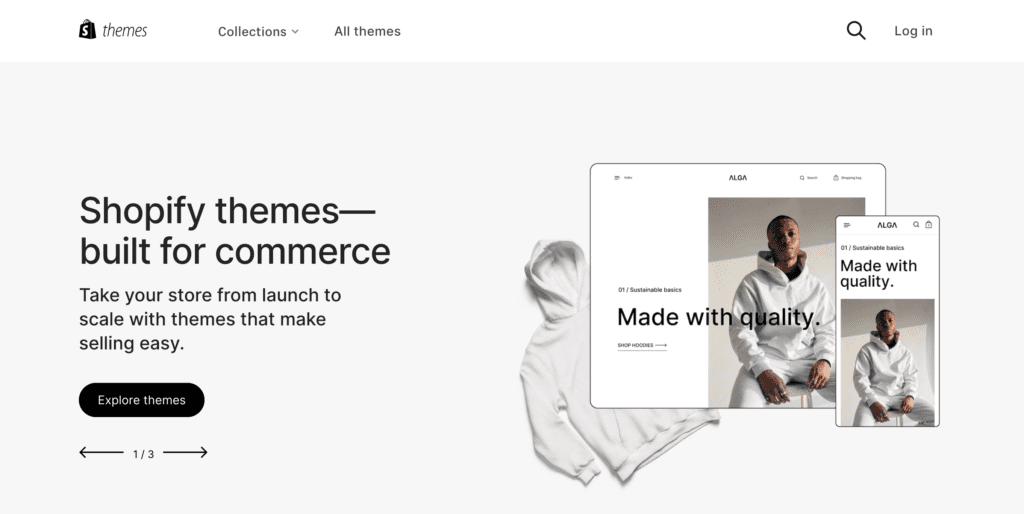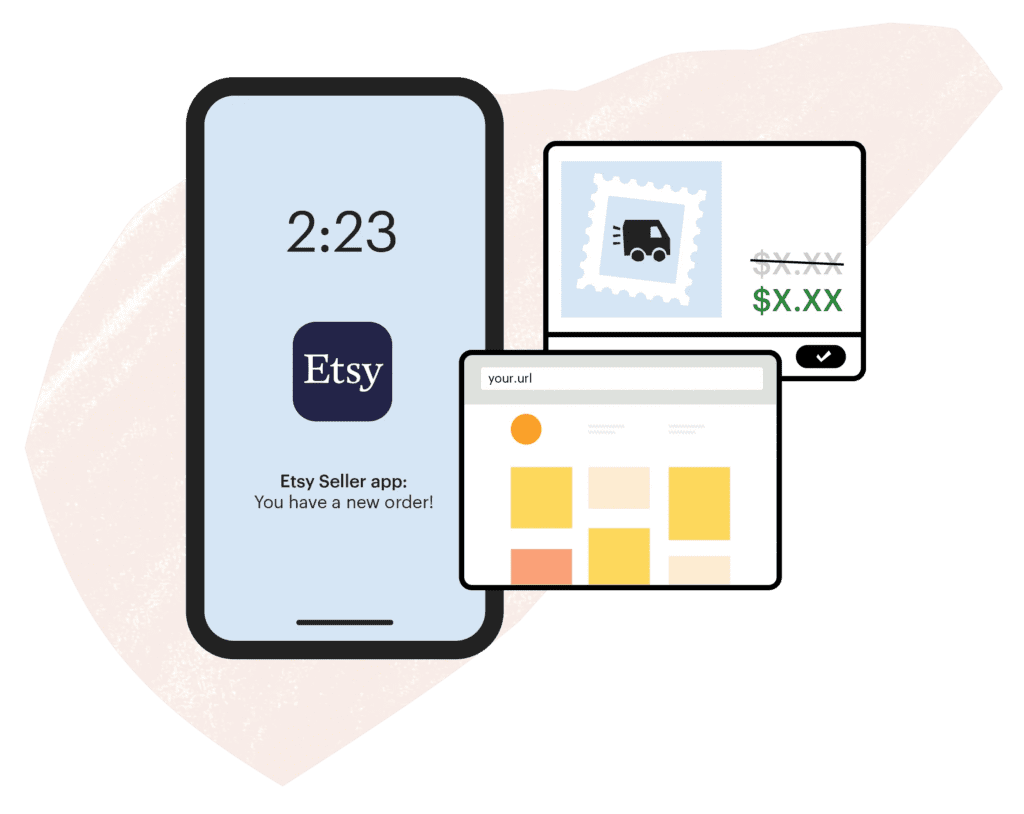When starting an online business, choosing the right e-commerce platform is crucial. Two popular options are Shopify and Etsy, each with its own unique advantages and disadvantages.
In this guide, we’ll provide a detailed breakdown and comparison of Shopify vs Etsy, covering various aspects such as customization, fees, audience, and more, to help you make an informed decision about which platform is the right fit for your e-commerce venture.
Shopify vs Etsy

- 1. Purpose and Audience
- 2. Customization and Branding
- 3. Pricing and Fees
- 4. Marketing Tools
- 6. Ownership and Control
- 7. International Sales
- Conclusion:
1. Purpose and Audience
Shopify
Shopify is a versatile e-commerce platform designed for entrepreneurs and businesses looking to set up their own online stores.
It caters to a wide range of industries and business types, making it an excellent choice for those who want full control over their branding, products, and customer experience.
Sign up for a free trial and enjoy 3 months of Shopify for $1/month on select plans.
Etsy

Etsy, on the other hand, is primarily a marketplace for artisans, crafters, and vintage sellers. It attracts a specific audience interested in unique, handmade, custom, or vintage products.
If you fit into this niche, Etsy can be an ideal platform to showcase your offerings.
2. Customization and Branding
Shopify

Shopify offers extensive customization options. You can choose from thousands of themes, both free and paid, to create a unique storefront.
Additionally, you can fully customize your website using HTML, CSS, and JavaScript if you have coding skills or hire a developer.
Etsy
Etsy provides limited customization compared to Shopify. Sellers on Etsy use predefined templates and can customize elements like shop banners and profile information.
However, you can’t have the same level of control over the overall look and feel of your shop as you can with Shopify.
3. Pricing and Fees
Shopify
Shopify operates on a subscription-based model. It offers different plans with varying monthly fees, starting with the Basic plan.
Additionally, Shopify charges transaction fees unless you use their in-house payment gateway, Shopify Payments.

Basic Plan – For Individuals and Small Businesses : $39/mo + Credit card rates 2.9% + 30¢ USD online 2.7% + 0¢ USD in person.
Shopify Plan – For Small Businesses: $105/m + Credit card rates 2.6% + 30¢ USD online 2.5% + 0¢ USD in person.
Advanced Plan – For Medium to Large Businesses: $399/m + Credit card rates 2.4% + 30¢ USD online 2.4% + 0¢ USD in person.
Etsy
For sellers on Etsy, there is a $0.20 listing fee, and these listings remain active for a duration of four months or until they are sold.
When an item is successfully sold, a small commission in the form of a 6.5% transaction fee, along with a standard payment processing fee of 3% plus $0.25, is incurred.
Etsy offers Offsite Ads, wherein they invest in advertising your items across the web. Sellers are only required to pay a fee equal to 15% when a sale is generated through one of these advertisements.
- No additional monthly fees
- Secure transactions
- Automatic deposits
- Seller protection
4. Marketing Tools
Shopify
The Shopify Marketing Tools empower users to create custom email campaigns and establish on-the-go connections with customers through a suite of integrated marketing solutions.
Shopify Email facilitates the creation of email campaigns through a selection of pre-designed templates, enabling businesses to reach their customers strategically via email marketing.
With Shopify Inbox, businesses can transform website visitors into paying customers while also efficiently addressing customer inquiries through the convenience of chat-based communication.
Shopify Forms allows businesses to harness the potential of lead capture forms, compelling website visitors to subscribe. These forms can be seamlessly integrated into their online store, aiding in visitor-to-subscriber conversion.
Related: 15 Best Email Marketing Platforms and Tools
Etsy
Etsy provides its users with a set of simple yet powerful marketing tools, allowing them to streamline shop management tasks and allocate more time to enjoyable aspects of their business.
Shop owners can efficiently manage their business operations from any location using the Etsy Seller App.
This versatile app enables them to handle orders, make listing modifications, and promptly respond to buyer inquiries, enhancing the overall shopping experience.

Etsy also offers substantial savings on shipping costs. Shop owners can easily purchase and print discounted postage for their orders directly through their Etsy accounts, saving time and money.
Additionally, Etsy enables sellers to create personalized websites within minutes, seamlessly integrating them with their Etsy shops.
These custom websites are fully powered by the Etsy platform, providing a cohesive online presence for their businesses.
6. Ownership and Control
Shopify
With Shopify, you have full ownership and control of your brand and customer data. You are responsible for hosting your store, which gives you more autonomy but also requires more technical knowledge.
Etsy
Etsy retains control over the marketplace, and your shop operates within their ecosystem. While you have some control over your shop’s appearance and policies, you must adhere to Etsy’s terms and conditions.
7. International Sales
Shopify
Shopify offers multi-currency support and has tools to help you sell globally. You can set up multiple storefronts for different regions, making it easier to expand your business internationally.
Etsy
Etsy also supports international sales, but it may not be as straightforward as Shopify’s international features. You’ll need to consider shipping, customs, and currency conversion when selling internationally on Etsy.
Conclusion:
The choice between Shopify and Etsy depends on your business goals, products, and preferences. Shopify offers greater customization, control, and scalability, making it suitable for a wide range of businesses.
Etsy, on the other hand, is a niche marketplace with a built-in audience, ideal for artisans and crafters seeking a platform that aligns with their products.
Consider your target audience, the level of control you want, your budget, and your growth plans when making your decision.
Some entrepreneurs even choose to use both platforms simultaneously to tap into different markets and maximize their online presence. Ultimately, your choice should align with your unique business needs and long-term objectives.







